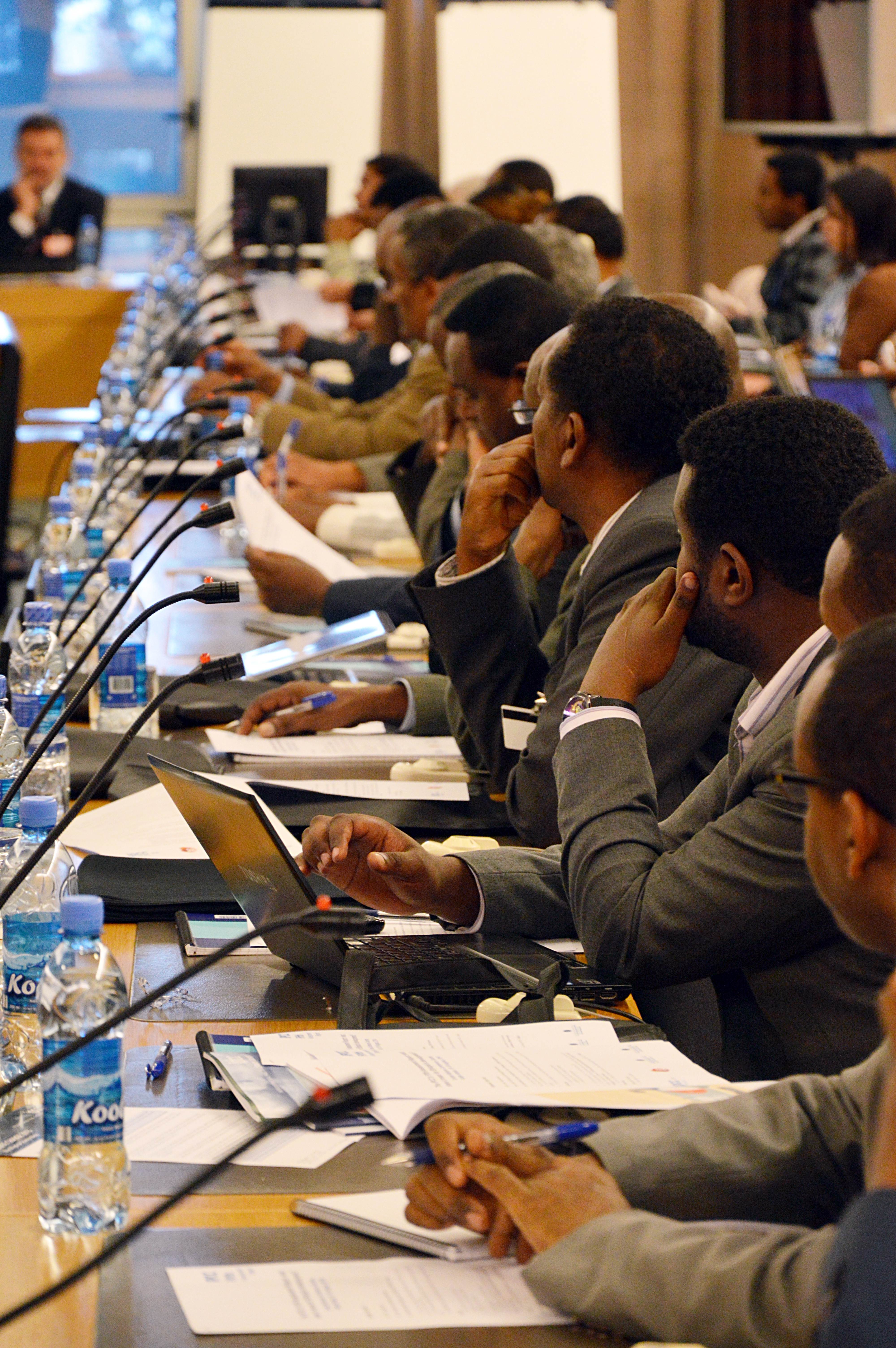Ethiopia engages with the IPCC Fifth Assessment Report
Ethiopia engages with the IPCC Fifth Assessment Report
CDKN Africa's Claire Mathieson reports from Addis Ababa, Ethiopia on the IPCC Fifth Assessment Report Outreach Event which saw IPCC Authors, the Government of Ethiopia and NGOs discuss "What's in it for Ethiopia's development".
Business as usual is simply not an option – a stance Ethiopia is taking seriously, as was made clear during the IPCC Fifth Assessment Report Outreach event, held at the United National Conference Centre, Addis Ababa, Ethiopia 18-19 August.
Emma Williams, head of Wealth Creation and Climate Change at the UK’s Department for International Development, Ethiopia called the report “sobering, but unsurprising” and hailed Ethiopia’s efforts to be a part of the solution to climate change, despite not historically being part of the problem. “Ethiopia has ambitious programmes and real international leadership, translating vision into actions.”
The event, a collaboration between CDKN, the IPCC and the government of Ethiopia, brought together key role players, scientists, NGOs and IPCC AR5 authors and was an opportunity to directly engage with policy makers on the report and discuss how the Government of Ethiopia is addressing the issue - namely though its Climate Resilience Green Economy (CRGE) strategy.
[caption id="attachment_40349" align="alignleft" width="199"] Delegates from government, civil society and the science world grapple with the fifth assessment report and what it means for Ethiopia.[/caption]
Delegates from government, civil society and the science world grapple with the fifth assessment report and what it means for Ethiopia.[/caption]
During the author presentations on the Fifth Assessment Report, the physical science showed that all of Africa is very likely to warm. But predicting specifics is far harder; Ethiopia has already seen different parts of the country experience different types of temperature increases. The question of whether Ethiopia - and the rest of the world - can stay below the 1.5-degree increase is no longer one for scientists, but rather for policy makers.
Added to the stress of a fast growing population, policy makers need to be aware that climate change will interact with non-climate drivers and stressors to exacerbate existing vulnerability. Ethiopia aspires to be both a middle income and a carbon-neutral country by 2025. Adaptation of the country’s economy is key.
“If we do not prepare adequately, the cost will escalate. There is an urgent need for us to understand our climate systems and how these will impact our future,” said HE Alemayehu Tegenu, Minister of Water, Irrigation and Energy.
The event, part of a series of six in African and Asian countries, was preceded by journalist training provided by Inter Press Service. The training included a presentation via Skype from Jonathan Lynn, Head of Communications and Media Relations at IPCC who gave the journalists an understanding of the function and importance of the panel.
The media was prepared for what the conference would entail, shown how to bring climate change into reports and reminded of the importance of keeping climate change in the news in Ethiopia.
Feature image: Journalists in Addis Ababa, Ethiopia partake in training to better understand the IPCC Fifth Assessment Report
Courtesy of Claire Mathieson
